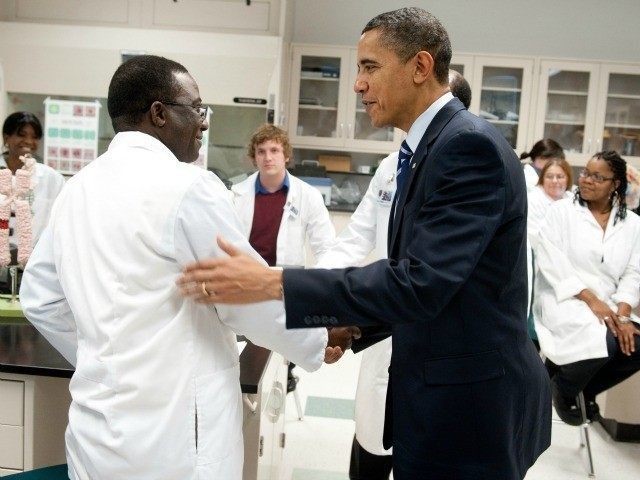Companies’ demand for foreign white-collar guest workers is so high that they have reached the 85,000 annual quota just two weeks after the yearly process began April 1.
The annual cap however, does not limit the growing use of lower-wage H-1B guest-workers by universities and their partners, including many companies.
The H-1B visas effectively last for six years, so companies, universities, and even government agencies are already employing an overall population of roughly 650,000 H-1B white-collar professionals in the United States. That’s close to the number of Americans who annually graduate with skilled degrees in business, science, technology, medicine, and architecture.
U.S. Citizenship and Immigration Services (USCIS) announced Thursday that demand has exceeded the annual 65,000-cap for graduates of foreign universities, and the 20,000-cap for foreign workers who get masters’ degrees from U.S. universities.
“USCIS will use a computer-generated process, also known as the lottery, to randomly select the petitions needed to meet the caps of 65,000 visas for the general category and 20,000 for the advanced degree exemption,” the agency explained in a release.
The “advanced degree exemption” applies to foreign nationals who have obtained a U.S. master’s degree or higher. USCIS says it will perform the advanced degree H-1B visa lottery first. Those advanced degree petitioners who are not selected will then be placed in the general H-1B pool for a chance at one of the additional 65,000 H-1B slots.
The agency said it will be returning filing fees for those H-1B petitions that are not selected. USCIS added that it does not yet have a date for the lottery due to the high volume of petitions.
H-1B visas are billed as a guest worker program intended to provide U.S. businesses access to foreign nationals with “highly specialized knowledge in fields such as science, engineering and computer programming.” However, the program also imports foreign professors, accountants, designers, journalists, scientists, doctors, and many other non-technology experts.
The program has generated controversy in recent years amid allegations that some U.S. companies have been using the program to replace American employees with lower wage foreign workers.
USCIS added Thursday that it would continue to accept petitions for additional H-1B visas that are not subject to the congressionally mandated cap.
“Petitions filed on behalf of current H-1B workers who have been counted previously against the cap, and who still retain their cap number, will also not be counted toward the congressionally mandated FY 2017 H-1B cap,” USCIS added.
Other petitions USCIS will continue to accept include:
-Extend the amount of time a current H-1B worker may remain in the United States;
-Change the terms of employment for current H-1B workers;
-Allow current H-1B workers to change employers; and
-Allow current H-1B workers to work concurrently in a second H-1B position.

COMMENTS
Please let us know if you're having issues with commenting.